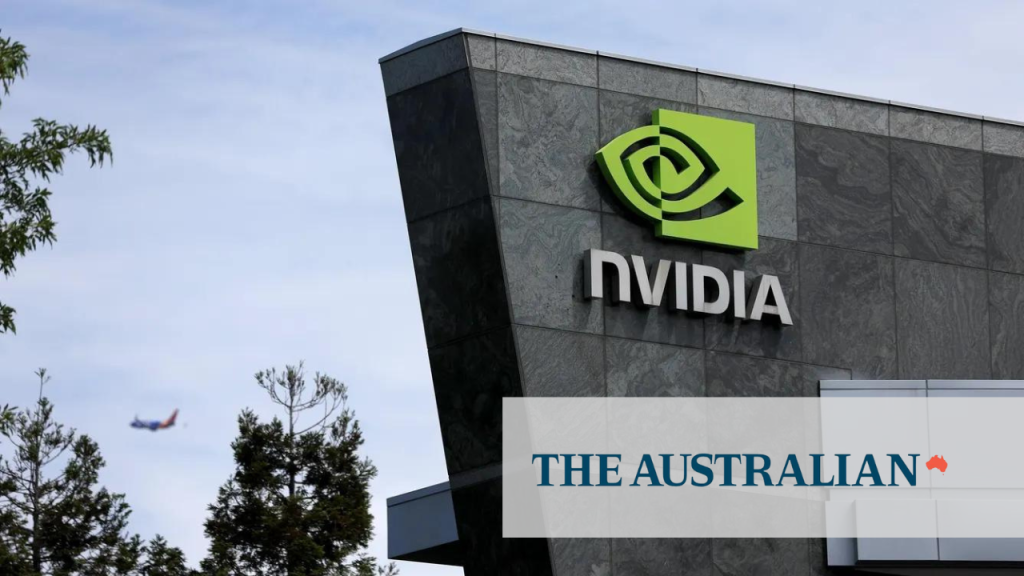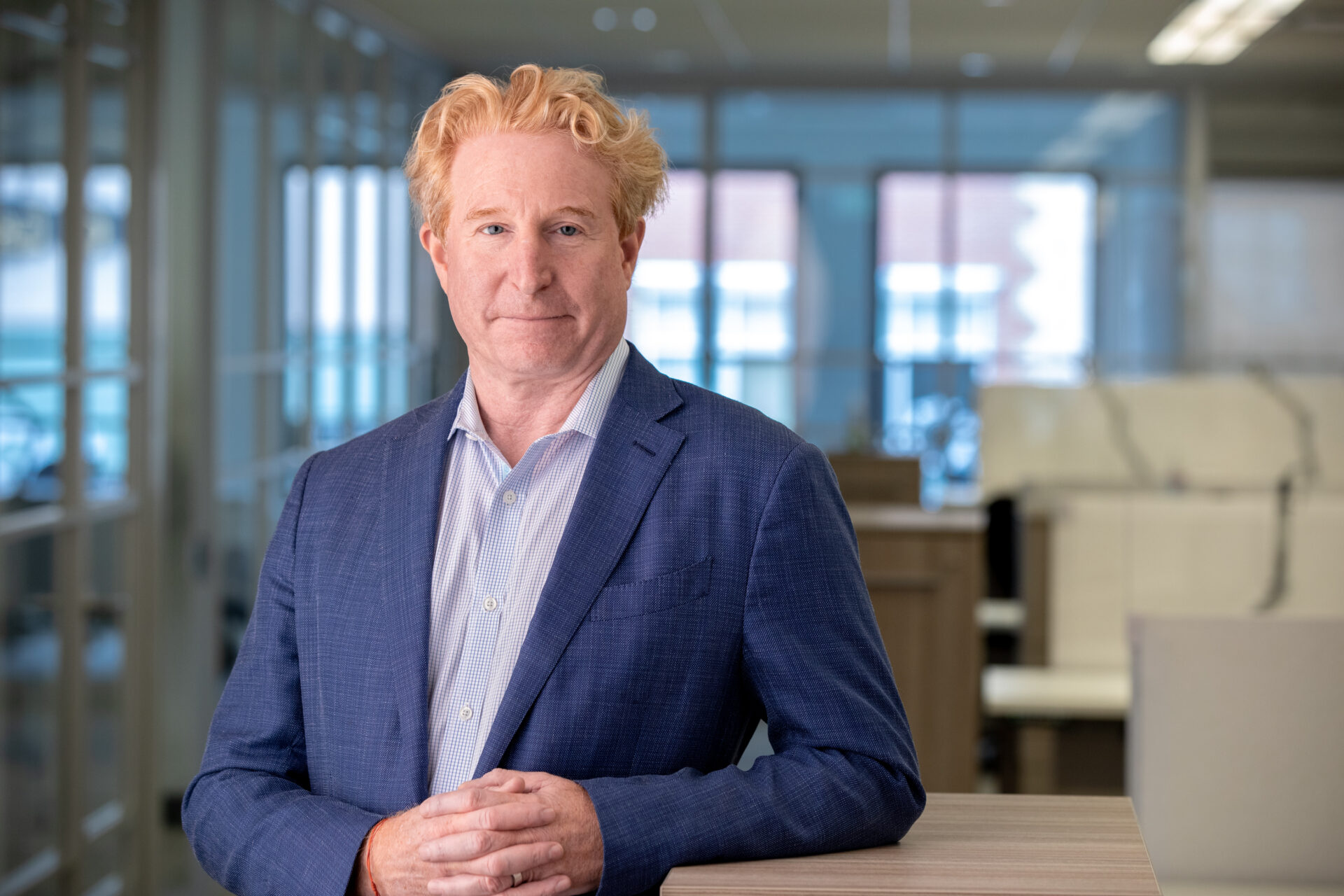Why Axiom believes Nvidia’s growth defies bubble concerns

Nvidia’s shares are not in a bubble, according to Bradley Amoils, a growth-obsessed investor whose fund returned 47 per cent in the past year and believes calculated bets in Nvidia and other high-growth mega-cap stocks are smarter than investing in private equity.
New York-based Mr Amoils is the lead portfolio manager of Axiom Investors’ global equity strategy and first invested in what has become the world’s hottest stock back in December 2022.
The growing excitement surrounding artificial intelligence has made Nvidia’s chips highly sought-after, propelling it to become the third most valuable US company and sparking concerns about a potential bubble.
But Mr Amoils says the AI chip maker, which accounts for about 6 per cent of the portfolio he oversees, has seen its earnings grow much faster than its valuation.
“Nvidia’s earnings have moved up fivefold in terms of the expectation of the absolute level of earnings in the last year. However, the stock has only moved up about fourfold,” he told The Australian during an annual roadshow around the country.
Axiom manages over $US20bn for investors and partners with Sydney-based Pengana Capital to offer access to its global equity fund to clients in Australia.
Mr Amoils said Axiom is actually sensitive to valuations and doesn’t like paying – in the words of the value-driven co-founder of distressed debt fund Oaktree Capital, Howard Marks – “glamorous valuations for glamorous growth”.
Instead, the fund looks for opportunities that rank high on its proprietary scorecard that uses more than a million data points from about 6000 companies to provide real-time scores to potential investments.
In the case of Nvidia, its investment team highlighted that out of the 12 million servers that were sold in 2023, only about 1.8 per cent were enabled with Nvidia’s parallel processors that power generative AI.
The forecast for 2024 is for a doubling of that proportion to 3.5 per cent, and potentially 5.3 per cent by 2026. “So a very small fraction of the servers are being enabled for AI … (but) this is really only the beginning,” Mr Amoils said.
That is because generative AI is currently being used primarily in chatbots but the technology is expected to evolve into “action” agents, requiring an even greater adoption of powerful graphics processing units (GPUs) from Nvidia.
Mr Amoils said in the current bifurcated environment, growth opportunities in public markets are scarce but very attractive.
To illustrate, he highlights that S&P 500 companies grew profits by 7 per cent in the fourth quarter of 2023 compared to the same period a year earlier, raking in $US35bn more profits. But Nvidia alone accounted for $US 10bn of that growth, or about a third of the jump.
The top six earners – which also include Amazon, Google parent Alphabet, Facebook’s Meta, Apple and Microsoft – accounted for 130 per cent, or 1.3 times the growth of the entire market. Conversely, sales in the bottom 15 companies – usually cyclical names sensitive to higher interest rates – went backwards by $US35bn.
Only about 15 per cent of companies in the US market index have sales growth expectations significantly above mid-to-high single digits.
“Because of this ice and fire environment, the top growers are disproportionately entrenching their position. They are able to grow, enhance their technologies and … outpace competitors,” he said.
In Axiom’s framework for categorising four “D” trends – demographics, debt, deglobalisation and disruption – the first two are dubbed “ice” representing the friction that trends such as an ageing population, declining birthrates and high debt levels can impose on economic activity.
The other two in the “fire” category include trends like changing trade patterns, nearshoring or offshoring of supply chains and rapidly advancing disruptive technologies that are catalysts for new growth opportunities.
“Growth is very scarce,” Mr Amoils said. “But we’re really at a good time for both public equities and active growth equities.”

“The universe is really ripe for folks that are able to cherry pick a couple dozen stocks and really benefit from some fundamental truths that are here to stay in terms of capital markets and the global economy.”
Mr Amoils also argues that, due to the opacity of the $5 trillion private equity industry, combined with rising interest rates, high leverage, and concerns about valuations, investors should reconsider their “overallocations” to PE in this environment.
“Many investors are disproportionately overinvested in alternatives and private equity … and over the last year or so many of the concerns that were front and centre for public assets after the financial crisis are now becoming questions for many of the private markets,” he said.
“(That is,) the obscurity of pricing, the opportunity for unexpected surprises and the overallocation to the asset class as opposed to public debt and equity that are much more transparent and much more liquid.”
His comments come as concerns mount over potentially inflated valuations of private equity and other private assets, coupled with a growing debate on whether expensive PE allocations truly outperform public equities, outside those made by superannuation funds that can use their size to bring costs and fees down.
Axiom’s global equity fund invests in close to 50 companies and has outperformed its MSCI index over most time periods except in the three-year horizon, when it underperformed its benchmark by 1.8 percentage points.
About 43 per cent of the fund was allocated to the top 10 positions as of December 31. Besides Nvidia, that included blockbuster drug makers Eli Lilly and Novo Nordisk, Amazon, Microsoft, ServiceNow, Alphabet, Visa, Taiwan Semiconductor Manufacturing Company and Adobe.
Late last year, the company sold out of car maker Tesla, previously one of their top 10 holdings, due to a more challenging earnings outlook and governance concerns.
The decision came when Axiom’s real-time data scoring system showed that weaker pricing trends, a slowdown in the EV market, and delays in new products such as full-self driving cars, meant Tesla’s operational “dynamism” was slowing.
Elements around management responsibility and governance were also part of the decision, Mr Amoils said.
“The governance, the questions around the founder as to whether (Elon Musk) is acting in the most responsible and best interests of outside investors, does influence our score, and is a really key real-time risk control parameter that makes sure we’re being prudent in how we allocate capital.”
Tesla’s fourth-quarter earnings disappointed investors in January, driving most of this year’s 27 per cent plunge in its shares, after gaining 102 per cent in 2023. Mr Musk is fighting a shareholder lawsuit over a $US55bn remuneration package they say was excessive.
“We clearly like these companies that have very long tailed conceptual opportunities with very large market share. However, the short-term and medium-term information flow has to validate the thesis,” Mr Amoils said.
Written by Paulina Duran – The Australian
View the original article here.

